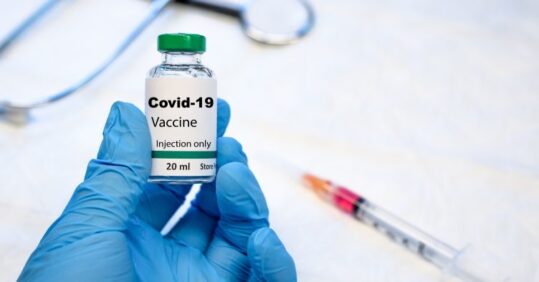Covid infection rates three times lower for double-vaccinated people

Covid-19 infection rates among under 65s who have had both jabs are three times lower than their unvaccinated peers, one of the largest studies into cases of the virus in England has revealed today.
Interim findings from REACT-1, covering 25 June to 5 July, found coronavirus infections had quadrupled since the previous study, which ran from 20 May to 7 June. One in 170 people in England are infected, with cases doubling up to every six days, the most recent study data showed.
Related Article: Nurses must be ‘recognised and rewarded’ to say in profession, says Streeting
Over 47,000 volunteers returned PCR test for the research, which also showed 0.35% of under 65s who were double-vaccinated had Covid, compared to 1.15% of those who had not received a dose.
But Professor Paul Elliott, director of the programme from Imperial College London, warned: ‘We are still seeing rapid growth in infections, especially among younger people.’
The research found ‘substantial increases’ of Covid infections among all under 75s, with the highest prevalence among 13-to-17-year-olds at 1.33% and 18-24-year-olds at 1.4%. No decision has yet been made on whether to offer UK under 18s the Covid-19 vaccine.
Infections have surged in all regions with the largest increase in London, where prevalence has jumped more than eightfold from 0.13% in the previous study to 1.08%.
Related Article: Investigations into whistleblowing at NMC delayed and recommissioned
Professor Elliot continued: ‘However, it is encouraging to see lower infection prevalence in people who have had both doses of a vaccine. It is therefore essential that as many people as possible take up both vaccine doses when offered.’
Covid-19 vaccine deployment minister Nadhim Zahawi added: ‘Almost two thirds of adults – 64% – have had both doses, and so have got the fullest protection on offer. I urge everyone to get their first and second dose when invited, as every jab helps to curb transmission and serious illness.
‘The small number of people who are double jabbed and experience symptoms should continue to get tested so we all play our part to stop the spread of this awful virus,’ she added.
Related Article: One in five appointments in general practice completed by a nurse
The REACT-1 study was commissioned by the Department of Health and Social Care and carried out by scientists, clinicians and researchers at Imperial College London, Imperial College Healthcare NHS Trust and Ipsos MORI.
The data comes after the REACT-2 sister study, which tracks past coronavirus cases, last month found over two million people in England may have had long Covid.

See how our symptom tool can help you make better sense of patient presentations
Click here to search a symptom




